This installation celebrates the philanthropy of the Circle of Benefactors, a group of donors and charity funders whose support is making a profound and wide-ranging impact at Imperial.

Philanthropy helps to make Imperial one of the most exciting universities in the world.
Support from the Circle of Benefactors is transforming young lives, accelerating scientific breakthroughs and making a tangible impact on the world.
As a College community, we are truly grateful for your support."
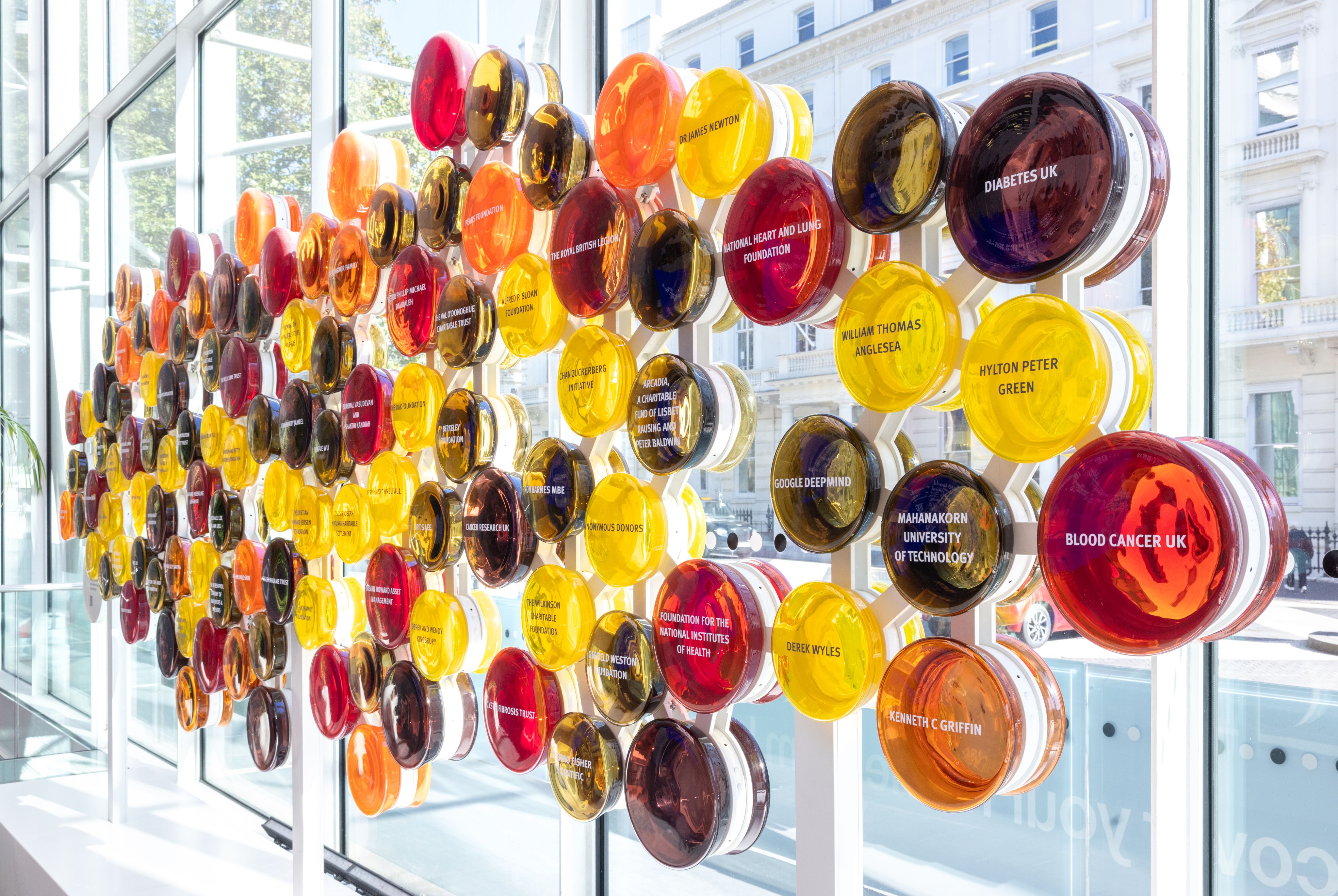
Meet incredible at Imperial
The impact of the Circle of Benefactors' generosity is felt throughout the entire College community and beyond.
Their inspiring philanthropy is bringing world-leading researchers together to work on challenges in health, environment and business, empowering generations of Imperial students to thrive and supporting engagement initiatives that connect people with the excitement of science and technology.
Meet some of the amazing people in the Imperial community whose lives and work have been touched by philanthropy.
Striving to eradicate malaria
Anna Strampelli is a PhD student and scholarship recipient in the Department of Life Sciences, studying gene drive strategies to modify and suppress mosquito populations.
Malaria disproportionately affects the most disadvantaged populations worldwide, taking an enormous health and economic toll. There is widespread agreement in the scientific community that new tools are required to avoid the reversal of recent progress in reducing malaria transmission rates and to achieve the long-term goal of eradicating malaria completely.
I am extremely grateful for the freedom that philanthropic support has given me to explore and contribute to eradicating malaria."
Gene drive is a highly promising technology for malaria control, where male mosquitoes pass on a dominant, modified gene that causes sterility in females and reduces their ability to feed on blood. We are targeting the mosquito species Anopheles gambia which is the most important human malaria transmission vector and therefore offers great potential to impact disease transmission.
My research explores self-limiting versions of the gene drive, which will allow scientists to control the duration and extent of the modified trait while it is being trialled. This will help ensure gene drive technology can meet regulatory requirements and contribute to political and community acceptance of this novel approach, which will be crucial to its success.
The scholarship I have received has given me the opportunity to conduct research in a novel, cutting-edge field that has the potential to contribute to malaria eradication, a cause that I care deeply about given my upbringing in sub-Saharan Africa.
Regardless of the eventual path which I choose for my career, I firmly believe that this PhD will provide the necessary foundations for a future role in science or global health. I am extremely grateful for the freedom which philanthropic support has given me to explore and contribute to this important area of research.
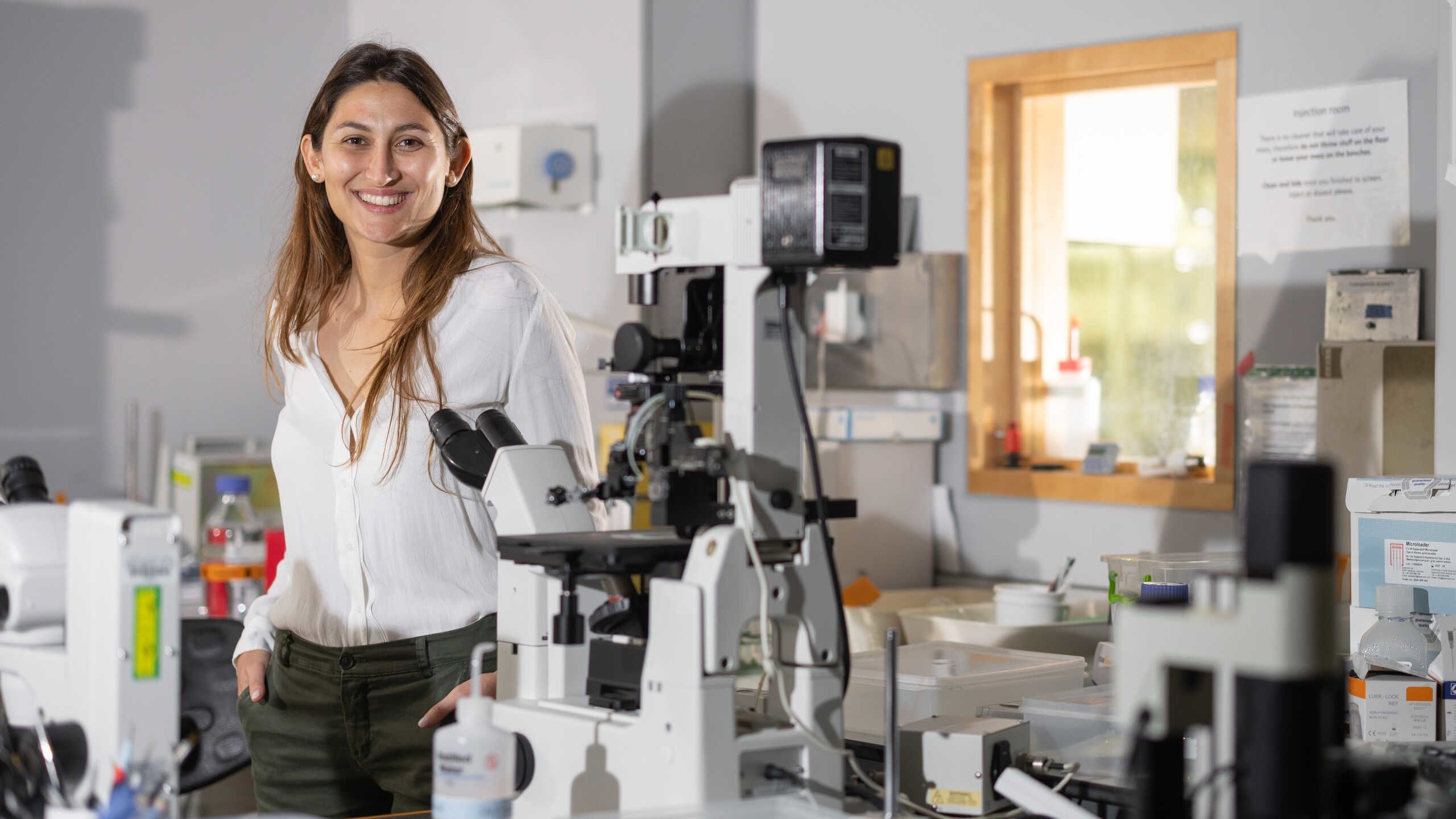
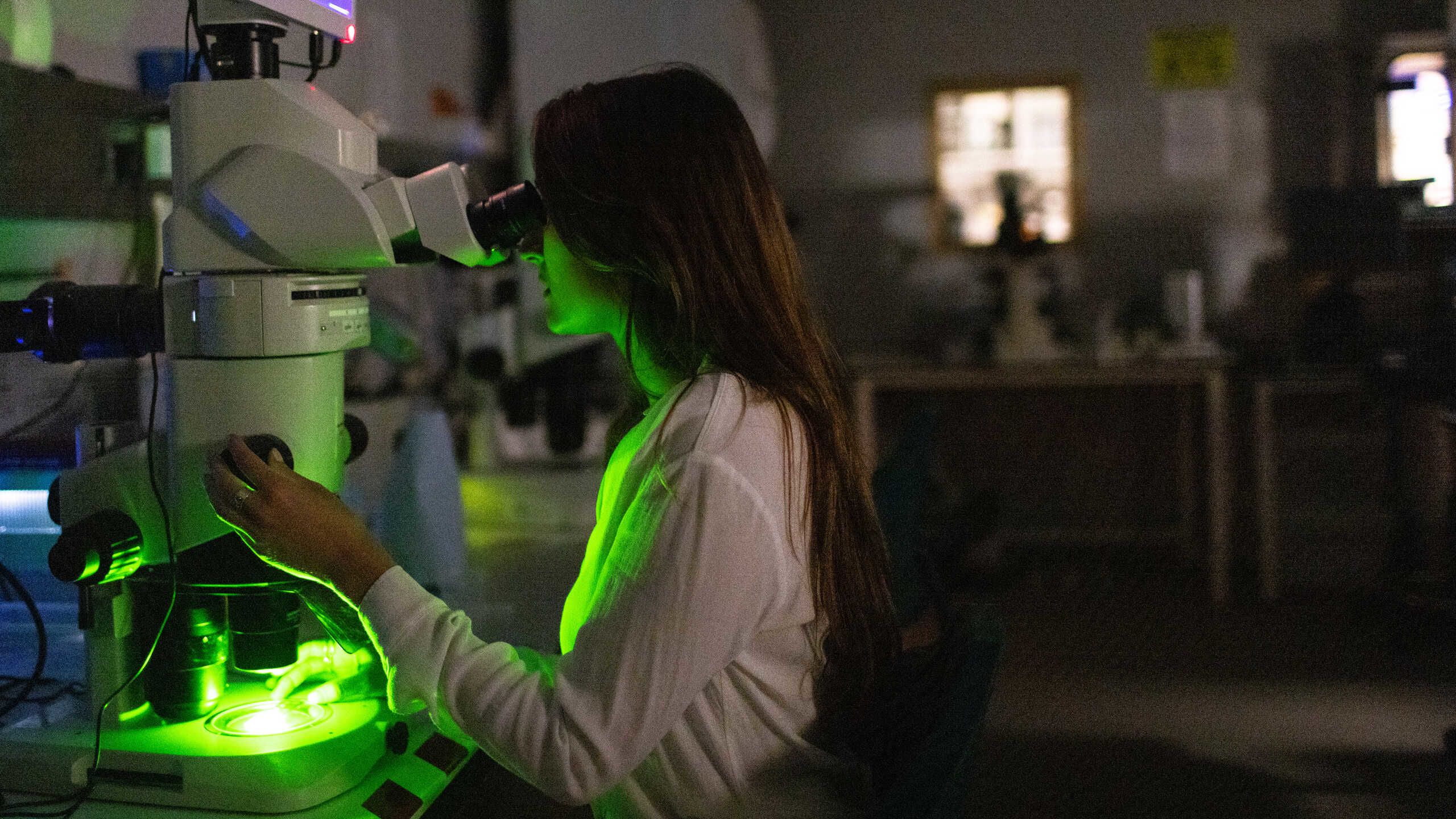


Striving to eradicate malaria
Anna Strampelli is a PhD student and scholarship recipient in the Department of Life Sciences, studying gene drive strategies to modify and suppress mosquito populations.
Malaria disproportionately affects the most disadvantaged populations worldwide, taking an enormous health and economic toll. There is widespread agreement in the scientific community that new tools are required to avoid the reversal of recent progress in reducing malaria transmission rates and to achieve the long-term goal of eradicating malaria completely.
I am extremely grateful for the freedom that philanthropic support has given me to explore and contribute to eradicating malaria."
Gene drive is a highly promising technology for malaria control, where male mosquitoes pass on a dominant, modified gene that causes sterility in females and reduces their ability to feed on blood. We are targeting the mosquito species Anopheles gambia which is the most important human malaria transmission vector and therefore offers great potential to impact disease transmission.
My research explores self-limiting versions of the gene drive, which will allow scientists to control the duration and extent of the modified trait while it is being trialled. This will help ensure gene drive technology can meet regulatory requirements and contribute to political and community acceptance of this novel approach, which will be crucial to its success.
The scholarship I have received has given me the opportunity to conduct research in a novel, cutting-edge field that has the potential to contribute to malaria eradication, a cause that I care deeply about given my upbringing in sub-Saharan Africa.
Regardless of the eventual path which I choose for my career, I firmly believe that this PhD will provide the necessary foundations for a future role in science or global health. I am extremely grateful for the freedom which philanthropic support has given me to explore and contribute to this important area of research.
Making our cities healthier
Professor Frank Kelly is the Battcock Chair in Community Health and Policy and Director of the Environmental Research Group. He has authored more than 400 high-impact research papers and provided policy support to WHO and the UK government.
My journey into air pollution research began with a walk over Westminster Bridge, shortly after moving to King’s College London from the University of Southampton. I was struck by just how poor the quality of air was in the city.
Since then, my research has centred on understanding where and when air quality is at its best or worst, and why variations in quality occur. Once we understand that, concrete steps can be taken to improve the air quality across the city, as well as the health and quality of life of the people who live, study and work here.
My team’s research has built a live map of pollution across London, which allows us to advocate for environmental policies to reduce pollution and to monitor the effectiveness of existing policies. Through the pollution map, we can see which pollutants people are inhaling and, by overlaying the map with local population health studies, we can uncover the health implications of pollution.
Our research is providing the evidence needed to drive change."
This research has revolutionised our understanding of the impact of pollution exposure, which we now know affects not just the lungs, but possibly many other organs in the body. These findings are deeply worrying but our research is providing the evidence needed to drive change.
Thanks to philanthropic support, the Environmental Research Group has relocated to the world-class facilities at our White City Campus and designed bespoke laboratories necessary to undertake pioneering research that cannot be done anywhere else.
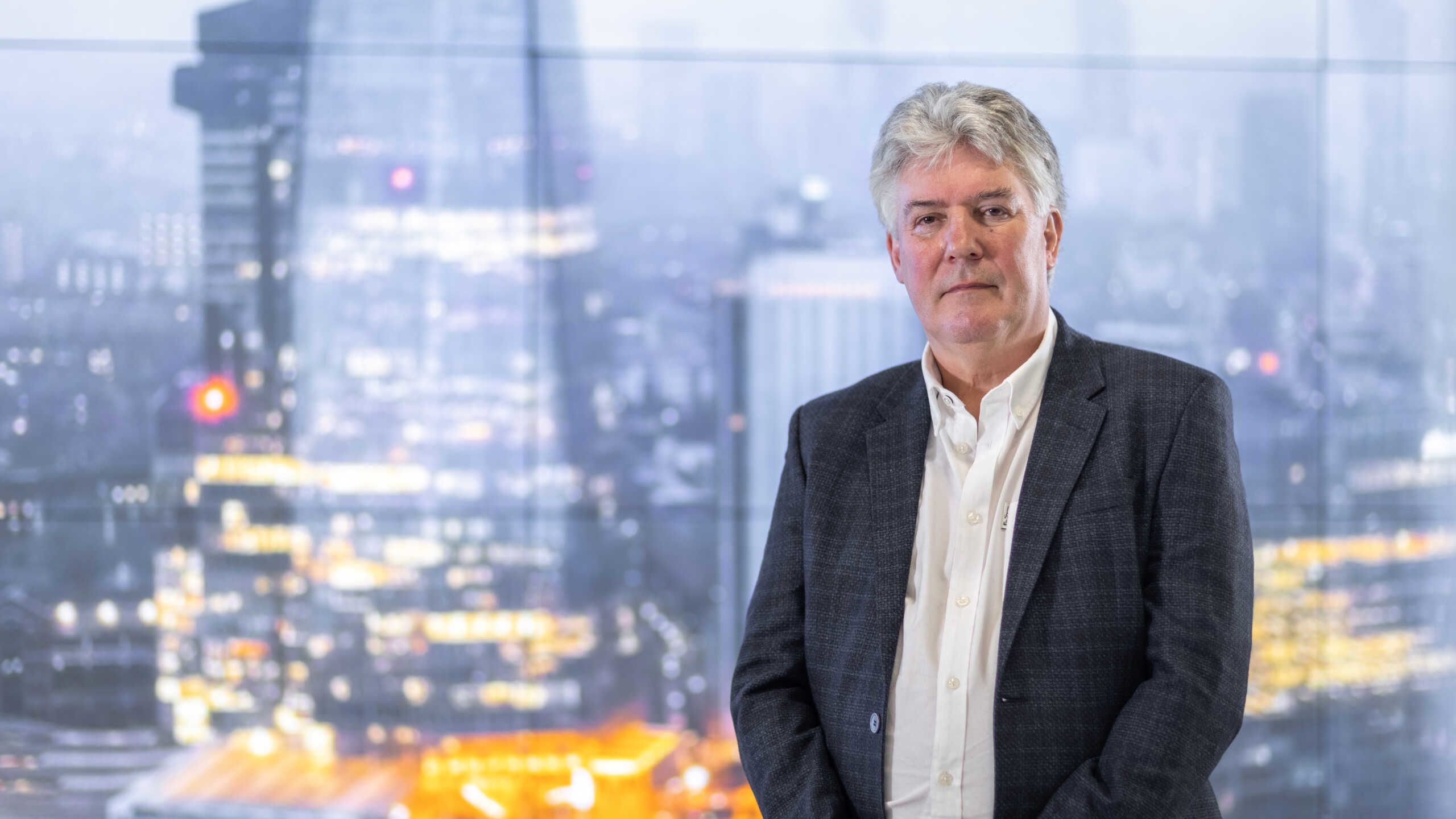
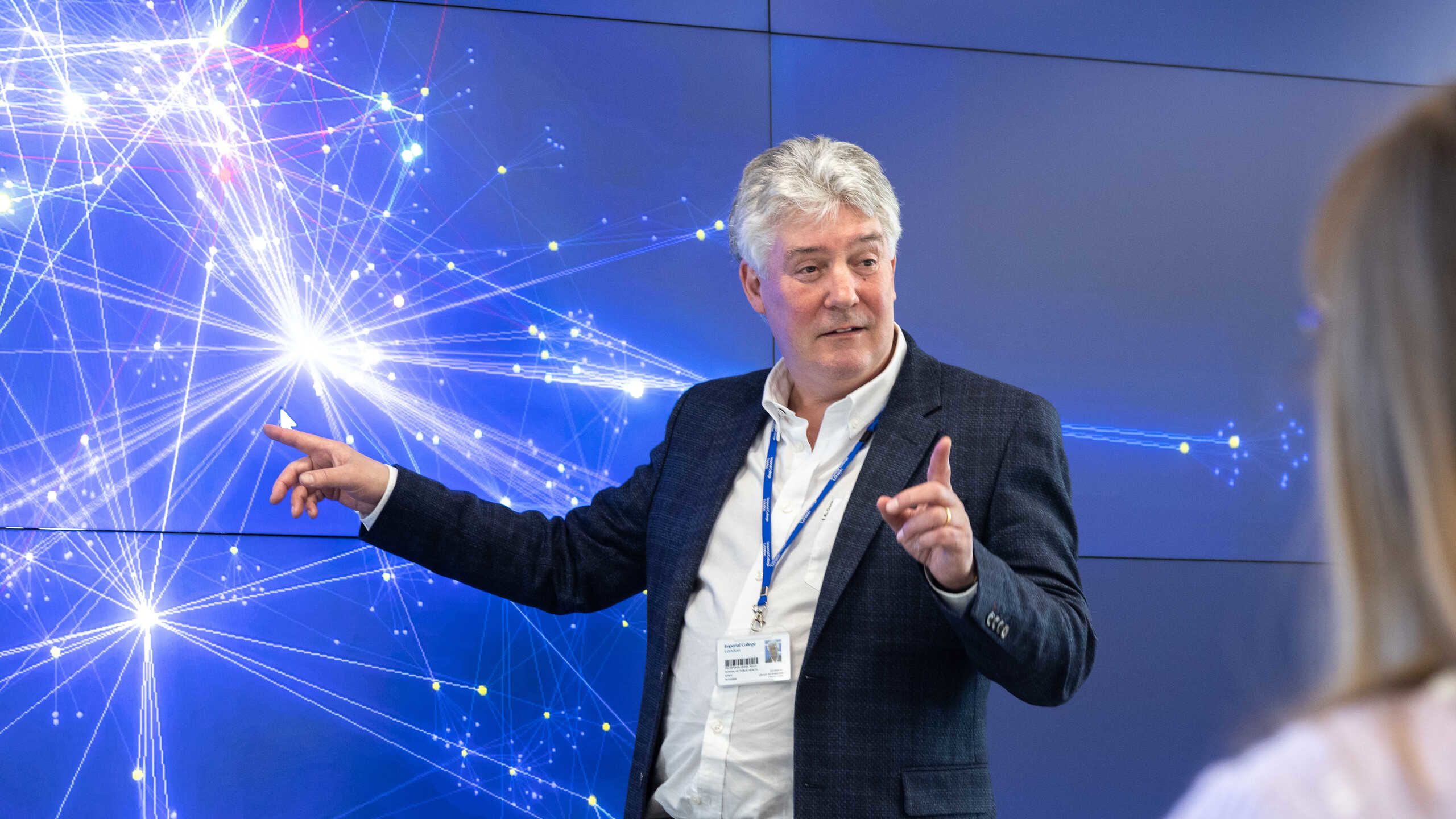

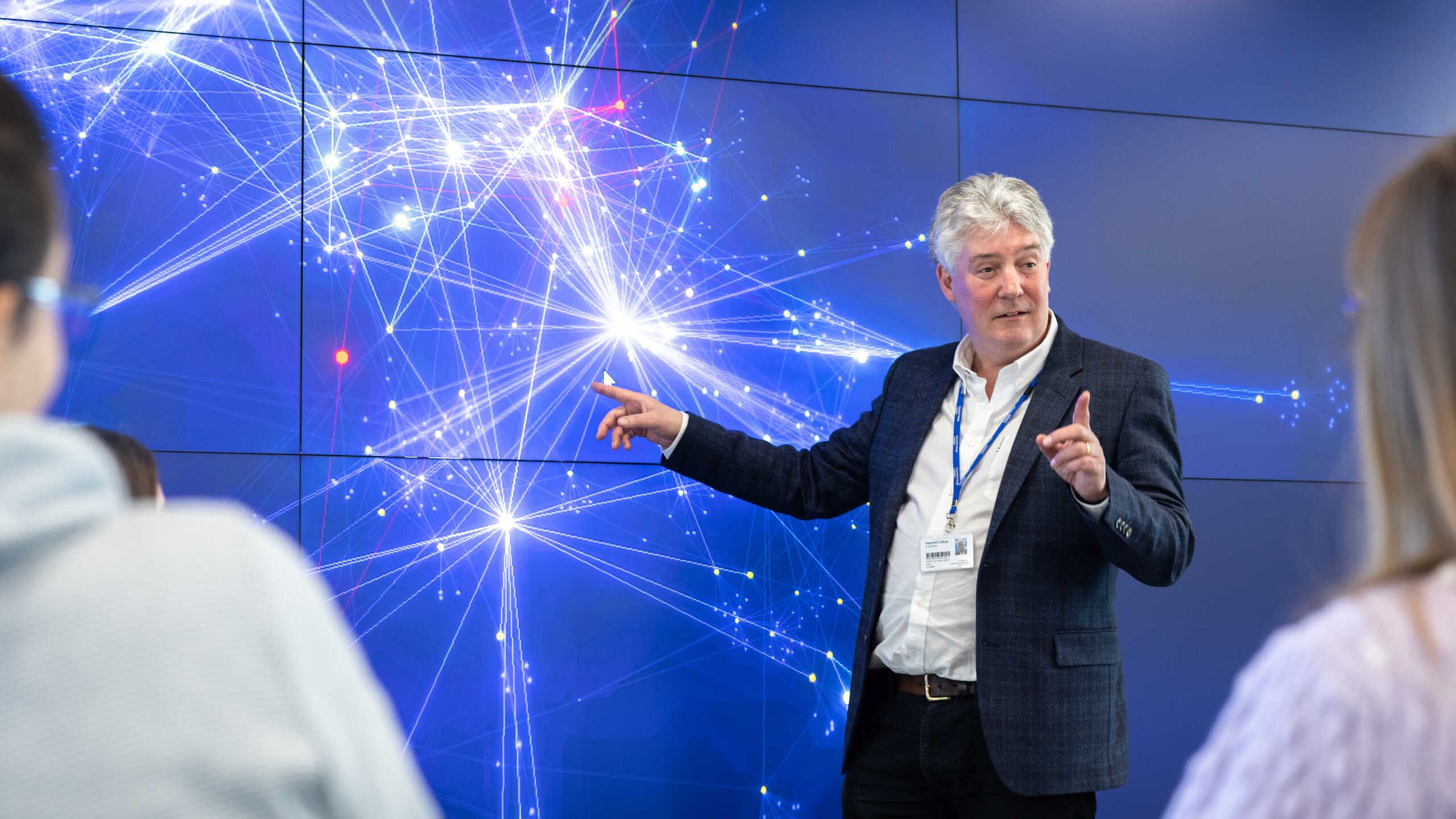
Making our cities healthier
Professor Frank Kelly is the Battcock Chair in Community Health and Policy and Director of the Environmental Research Group. He has authored more than 400 high-impact research papers and provided policy support to WHO and the UK government.
My journey into air pollution research began with a walk over Westminster Bridge, shortly after moving to King’s College London from the University of Southampton. I was struck by just how poor the quality of air was in the city.
Since then, my research has centred on understanding where and when air quality is at its best or worst, and why variations in quality occur. Once we understand that, concrete steps can be taken to improve the air quality across the city, as well as the health and quality of life of the people who live, study and work here.
My team’s research has built a live map of pollution across London, which allows us to advocate for environmental policies to reduce pollution and to monitor the effectiveness of existing policies. Through the pollution map, we can see which pollutants people are inhaling and, by overlaying the map with local population health studies, we can uncover the health implications of pollution.
Our research is providing the evidence needed to drive change."
This research has revolutionised our understanding of the impact of pollution exposure, which we now know affects not just the lungs, but possibly many other organs in the body. These findings are deeply worrying but our research is providing the evidence needed to drive change.
Thanks to philanthropic support, the Environmental Research Group has relocated to the world-class facilities at our White City Campus and designed bespoke laboratories necessary to undertake pioneering research that cannot be done anywhere else.
Science and innovation for all
Farial Missi is the Community Engagement Manager within The Invention Rooms at our White City Campus, supporting the development of the College’s local civic engagement strategy.
I grew up in the local area. I have always been conscious of how I’ve been supported in the community, whether by teachers and charity workers, youth workers or sports coaches. These experiences have been central to everything that I do in my work serving local communities.
I joined Imperial after participating in the pilot year of the Agents of Change female community leadership programme at The Invention Rooms. I have now come full circle and am managing the programme. I work with female community leaders to help them achieve their goals, whether that’s making local services more dyslexia friendly, supporting vulnerable young people on their learning journeys, or working with refugees to improve their English language skills, find employment and manage their mental health.
At The Invention Rooms, our programmes are designed to connect the College with members of the local community of all ages and at every stage of their life. We want them to feel that Imperial is open to them – that it’s a place where they are welcome.
Philanthropy enables us to build a bridge between Imperial and the people who live here in White City."
I’ve seen first-hand the difference that philanthropy is making in White City. It enables us to build a bridge between Imperial and the people who live here, creating accessible and meaningful connections, experiences and opportunities in STEM.
Thanks to philanthropy, we are raising our aspirations for outreach and engagement. Right now, we are consulting with community members and co-designing a sustainable, long-term future strategy so that we can work together to address local issues and deliver outcomes that matter to the community.
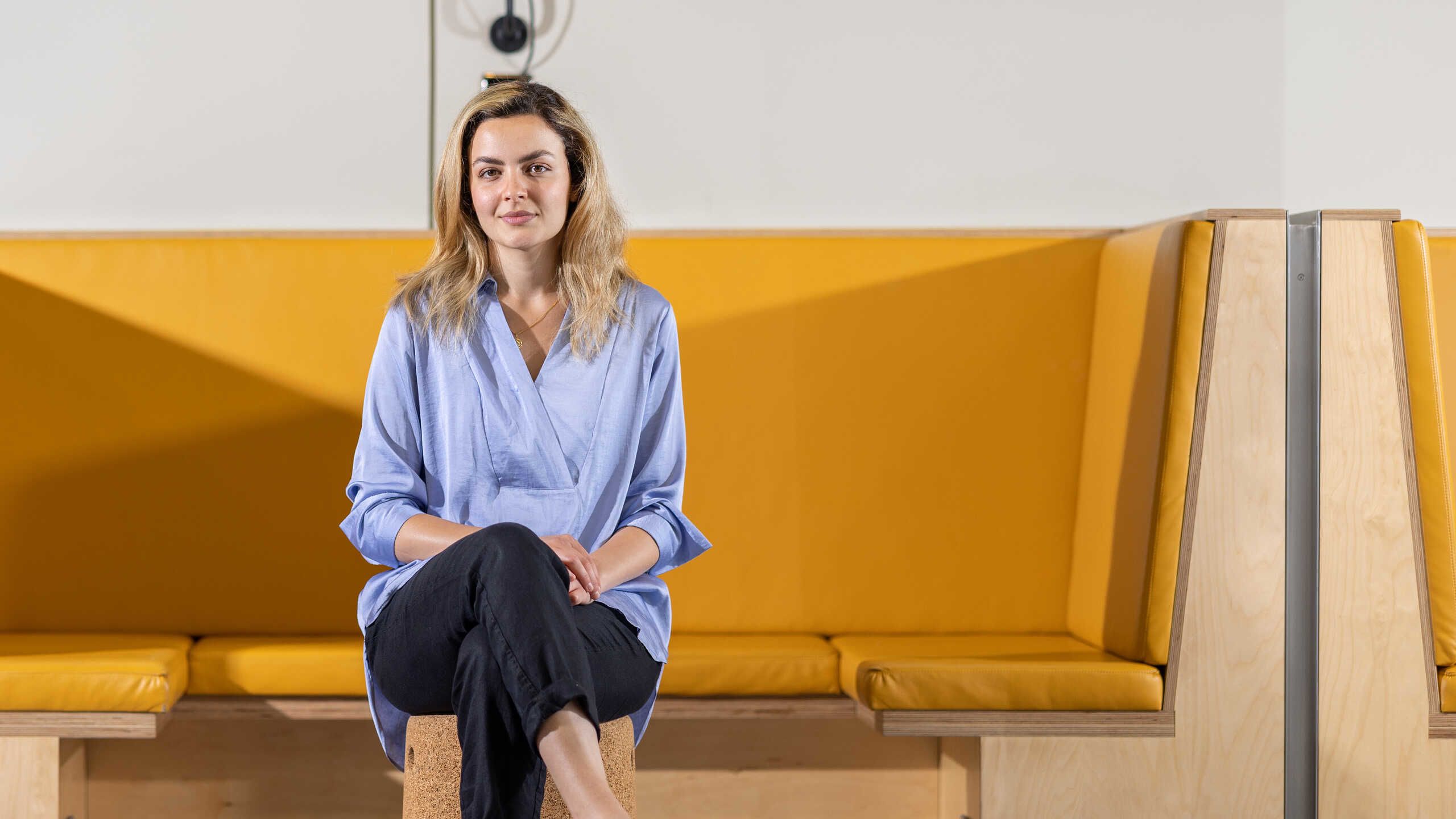
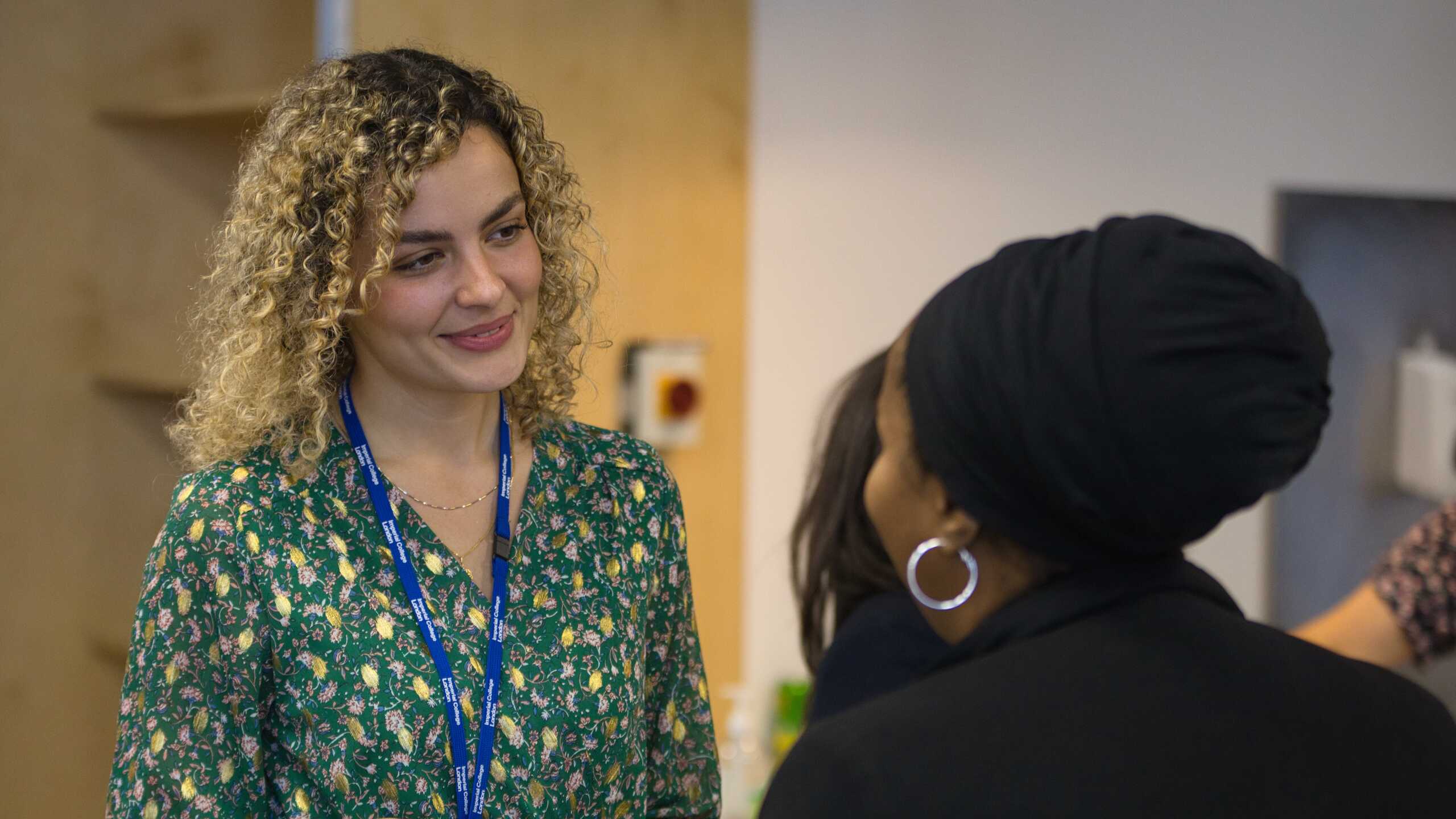
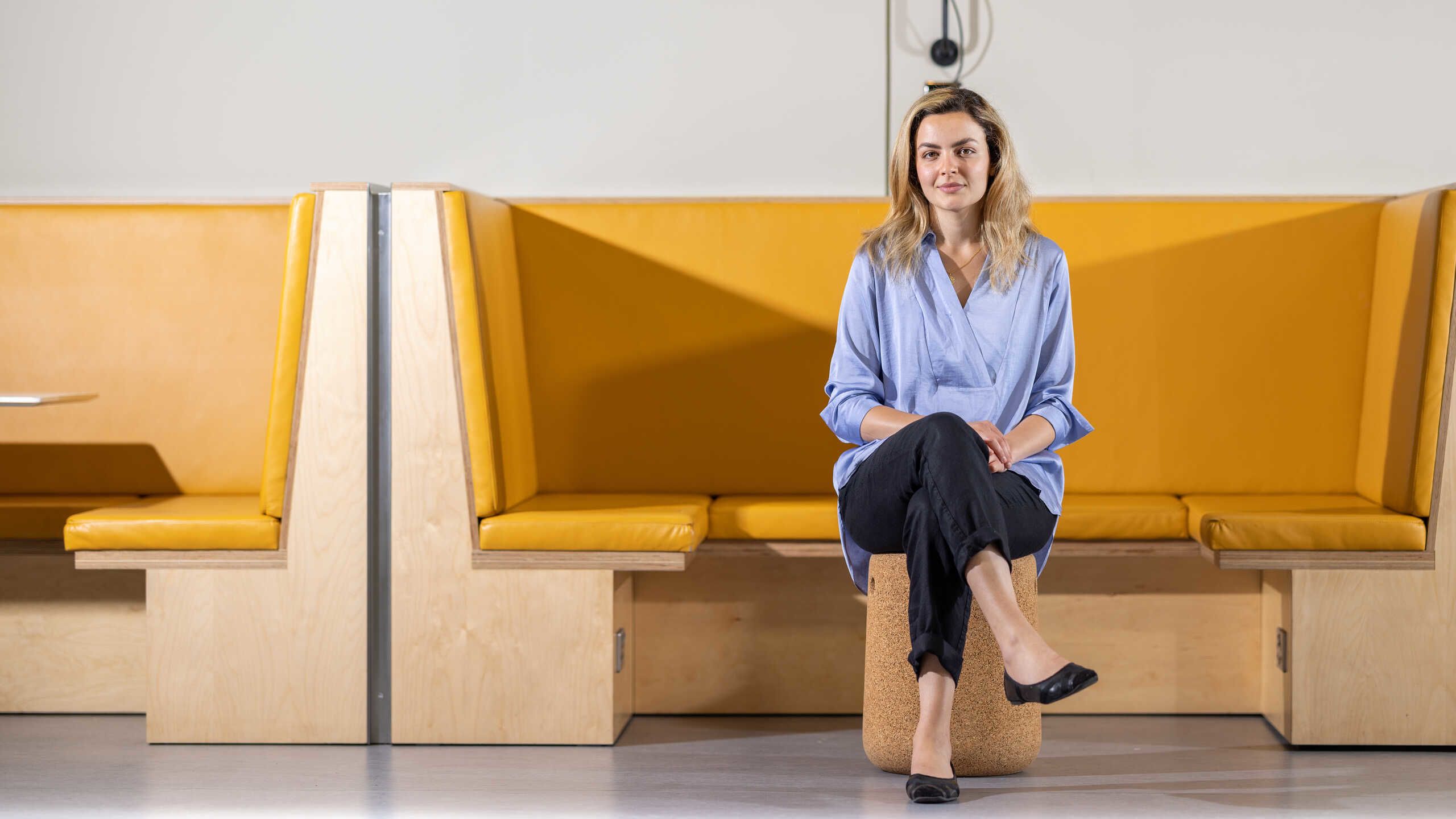
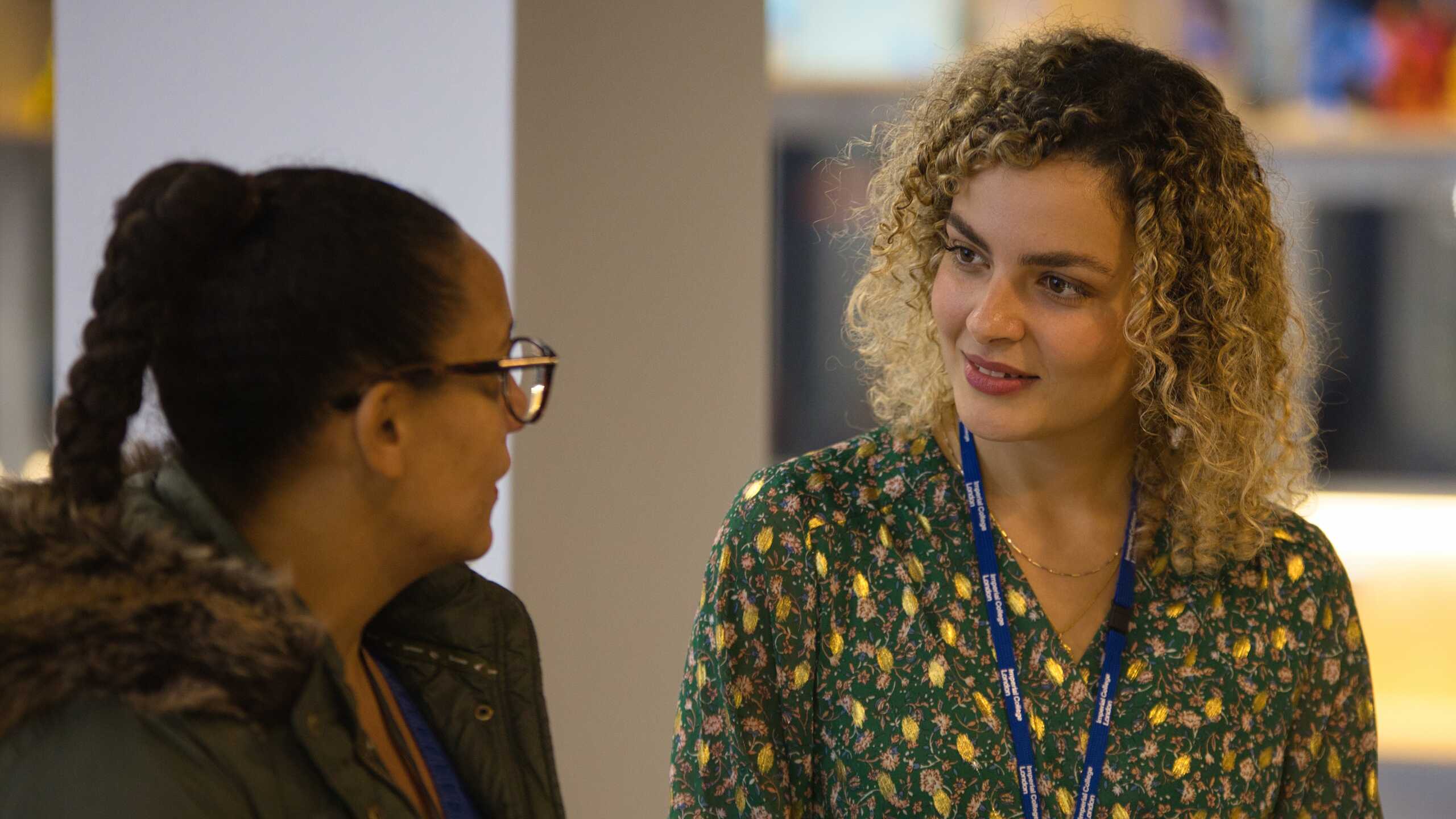
Science and innovation for all
Farial Missi is the Community Engagement Manager within The Invention Rooms at our White City Campus, supporting the development of the College’s local civic engagement strategy.
I grew up in the local area. I have always been conscious of how I’ve been supported in the community, whether by teachers and charity workers, youth workers or sports coaches. These experiences have been central to everything that I do in my work serving local communities.
I joined Imperial after participating in the pilot year of the Agents of Change female community leadership programme at The Invention Rooms. I have now come full circle and am managing the programme. I work with female community leaders to help them achieve their goals, whether that’s making local services more dyslexia friendly, supporting vulnerable young people on their learning journeys, or working with refugees to improve their English language skills, find employment and manage their mental health.
At The Invention Rooms, our programmes are designed to connect the College with members of the local community of all ages and at every stage of their life. We want them to feel that Imperial is open to them – that it’s a place where they are welcome.
Philanthropy enables us to build a bridge between Imperial and the people who live here in White City."
I’ve seen first-hand the difference that philanthropy is making in White City. It enables us to build a bridge between Imperial and the people who live here, creating accessible and meaningful connections, experiences and opportunities in STEM.
Thanks to philanthropy, we are raising our aspirations for outreach and engagement. Right now, we are consulting with community members and co-designing a sustainable, long-term future strategy so that we can work together to address local issues and deliver outcomes that matter to the community.
About the donor installation
Created in 2023, the Circle of Benefactors installation was designed to celebrate the impact of philanthropy at Imperial and recognise some of our most generous donors and charity funders.
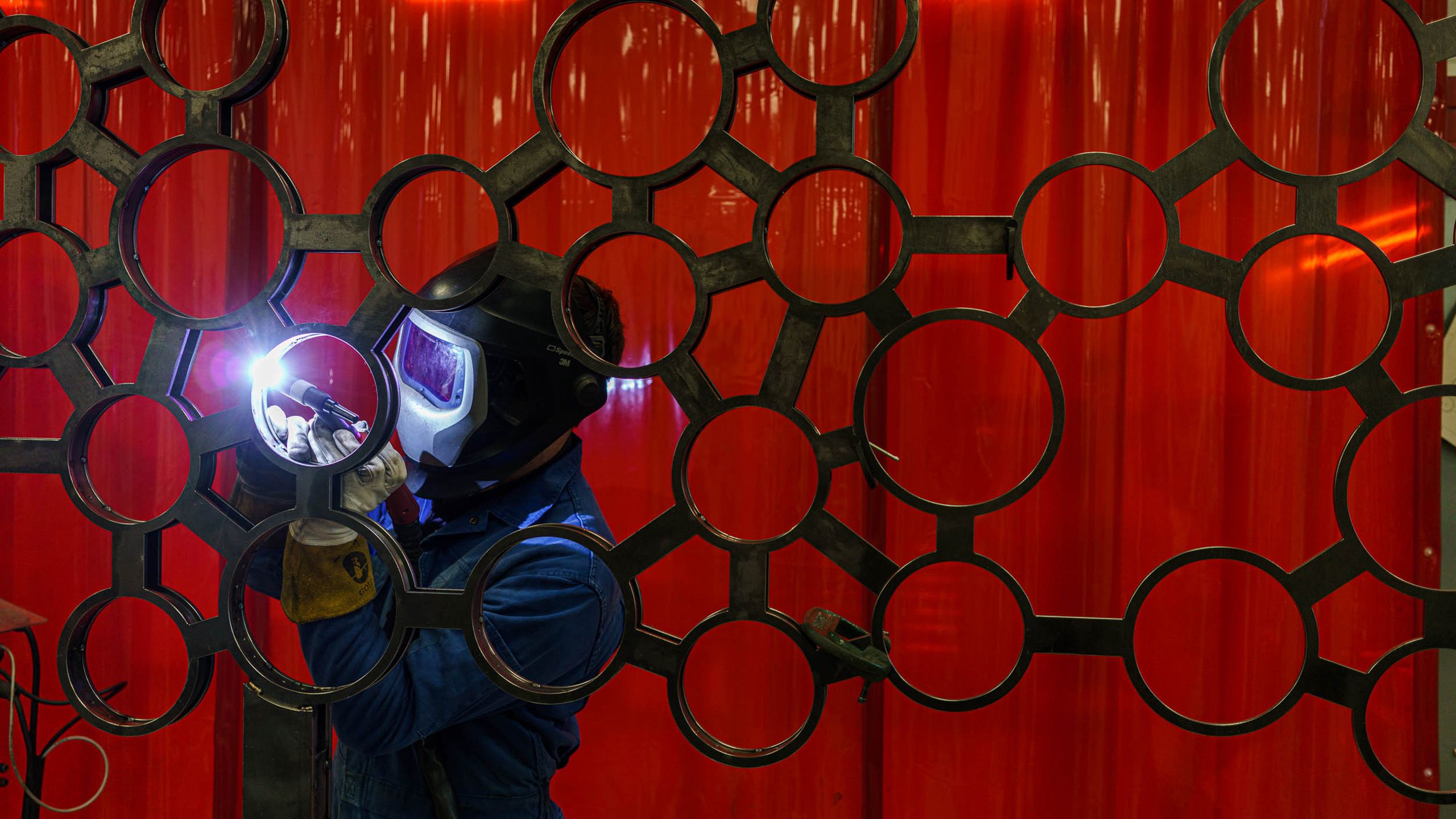
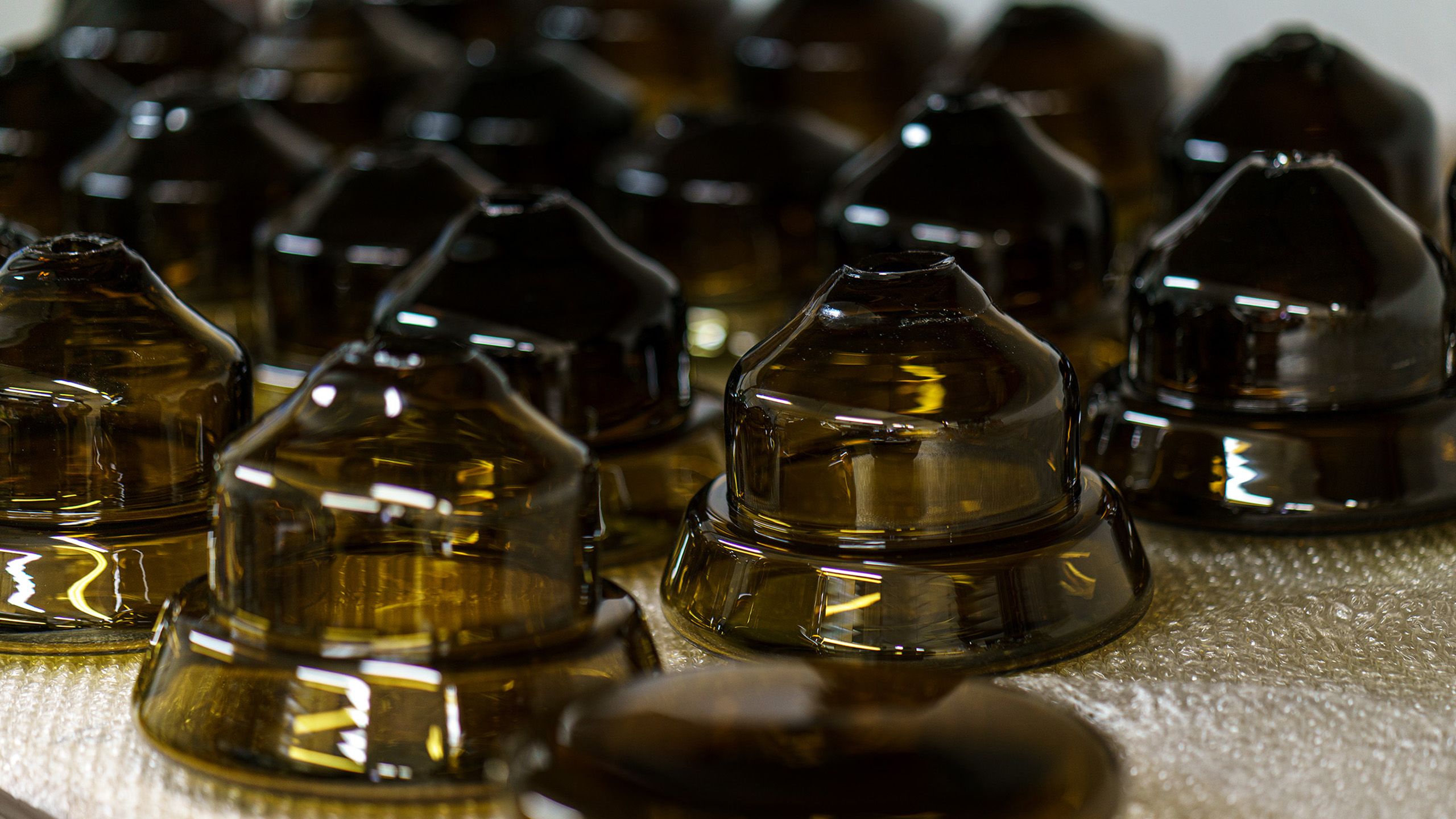
This work imagines Imperial as a living organism. Beginning with the idea that cells are the building blocks of life, we wanted to explore the way in which individual cells in the organism act together as one, while each preserves its own distinctiveness.
We were struck by how Imperial focuses both on the individual and on the big picture, and the importance of philanthropy in achieving that."
Each of the roundels of recycled glass bears the name of one of the members of the Circle of Benefactors. The work evokes the cellular structure of a living organism, each roundel distinct from, yet in relation to, those around it.
Video by Andrés Fraga
Video by Andrés Fraga
Members of the Circle of Benefactors
Alfred P. Sloan Foundation
William Thomas Anglesea
Arcadia, a charitable fund of Lisbet Rausing and Peter Baldwin
Ron Barnes MBE
Humphrey Battcock
Berkeley Foundation
Bezos Earth Fund
Blood Cancer UK
Dr Leda Braga
Brevan Howard Asset Management
British Heart Foundation
Cancer Research UK
The Charles Wolfson Charitable Trust
Chan Zuckerberg Initiative
Community Jameel
Cystic Fibrosis Trust
Philip da Costa
Victor Phillip Michael Dahdaleh
The Dangoor Family
Diabetes UK
Fondazione Isabella Seràgnoli
Foundation for the National Institutes of Health
Garfield Weston Foundation
Gates Foundation
The Gatsby Charitable Foundation
Google DeepMind
Gordon and Betty Moore Foundation
Hylton Peter Green
Kenneth C Griffin
The Helen Hamlyn Trust
HSBC UK
The Huo Family Foundation
The Jon Moulton Charity Trust
J P Moulton Charitable Foundation
The Sir Joseph Hotung Charitable Settlement
Derek and Wendy Kingsbury
The Kristian Gerhard Jebsen Foundation
Hugh and Josseline Langmuir
Dr Michael Lee and Ann Lee
Dr T S Lee
The Leverhulme Trust
Dr Douglas Longden
Mahanakorn University of Technology
The Michael Uren Foundation
Ken Minton CBE and Mary Minton
The Mohn Westlake Foundation
National Heart and Lung Foundation
Dr James Newton
The NOMIS Foundation
The Oak Foundation
Pears Foundation
Quadrature Climate Foundation
Quinbrook Infrastructure Partners
Mark Richardson
The Royal British Legion
Edmond and Lily Safra
Santander UK plc
Schmidt Futures
St Mary's Development Trust
Dr Richard Threlfall
Thermo Fisher Scientific
The Val O’Donoghue Charitable Trust
Brahmal Vasudevan and Shanthi Kandiah
The Wellcome Trust
The Wilkinson Charitable Foundation
Wolfson Foundation
Professor Winston Wong OBE
The Worshipful Company of Armourers & Brasiers
Wu Family Foundation
Derek Wyles
Anonymous donors
Members of the Circle of Benefactors
Alfred P. Sloan Foundation
William Thomas Anglesea
Arcadia, a charitable fund of Lisbet Rausing and Peter Baldwin
Ron Barnes MBE
Humphrey Battcock
Berkeley Foundation
Bezos Earth Fund
Blood Cancer UK
Dr Leda Braga
Brevan Howard Asset Management
British Heart Foundation
Cancer Research UK
The Charles Wolfson Charitable Trust
Chan Zuckerberg Initiative
Community Jameel
Cystic Fibrosis Trust
Philip da Costa
Victor Phillip Michael Dahdaleh
The Dangoor Family
Diabetes UK
Fondazione Isabella Seràgnoli
Foundation for the National Institutes of Health
Garfield Weston Foundation
The Gatsby Charitable Foundation
Gates Foundation
Google DeepMind
Gordon and Betty Moore Foundation
Hylton Peter Green
Kenneth C Griffin
The Helen Hamlyn Trust
HSBC UK
The Huo Family Foundation
The Jon Moulton Charity Trust
J P Moulton Charitable Foundation
The Sir Joseph Hotung Charitable Settlement
Derek and Wendy Kingsbury
The Kristian Gerhard Jebsen Foundation
Hugh and Josseline Langmuir
Dr Michael Lee and Ann Lee
Dr T S Lee
The Leverhulme Trust
Dr Douglas Longden
Mahanakorn University of Technology
The Michael Uren Foundation
Ken Minton CBE and Mary Minton
The Mohn Westlake Foundation
National Heart and Lung Foundation
Dr James Newton
The NOMIS Foundation
The Oak Foundation
Pears Foundation
Quadrature Climate Foundation
Quinbrook Infrastructure Partners
Mark Richardson
The Royal British Legion
Edmond and Lily Safra
Santander UK plc
Schmidt Futures
St Mary's Development Trust
Dr Richard Threlfall
Thermo Fisher Scientific
The Val O’Donoghue Charitable Trust
Brahmal Vasudevan and Shanthi Kandiah
The Wellcome Trust
The Wilkinson Charitable Foundation
Wolfson Foundation
Professor Winston Wong OBE
The Worshipful Company of Armourers & Brasiers
Wu Family Foundation
Derek Wyles
Anonymous donors
